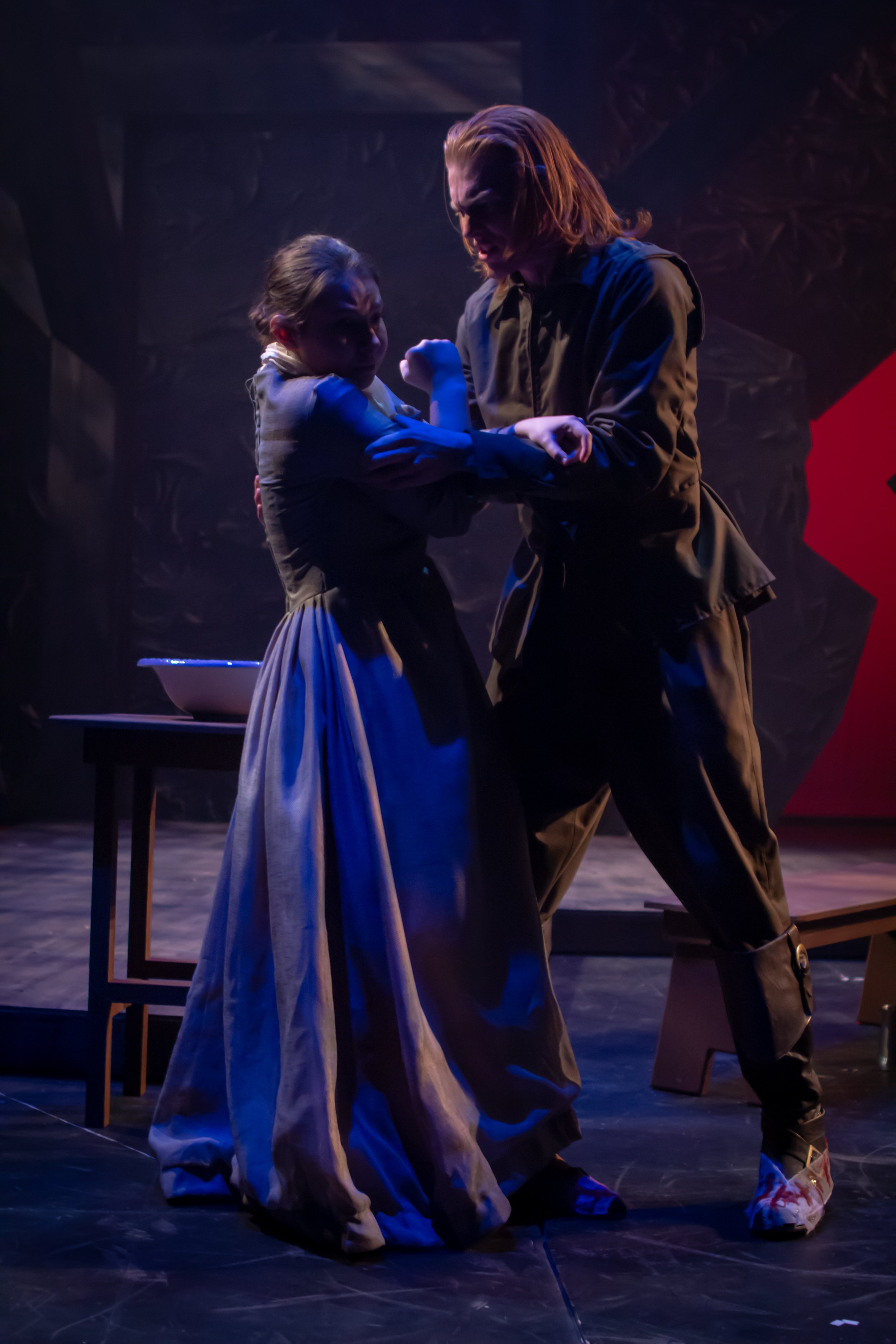Director’s Note
Great plays contain multitudes. When Arthur Miller first shared The Crucible with the world in 1953, he deftly manipulated the horrific events of the Salem Witch Trials of 1692 to rebuke the dangerous hysteria of 1950s McCarthyism. Himself a victim of Joseph McCarthy’s fanatical and life-destroying blacklisting, Miller composed a topical parable for his time. Through thousands of subsequent productions over the past 65 years, The Crucible has bent to its times. Miller’s parable continually warns us of evil’s perpetual capacity to masquerade as righteousness, of the danger of moral certainty and necessity of intellectual humility, of our collective susceptibility to authoritative bullies, and of the moral imperative to speak truth to power regardless of the consequence. Needless to say, observant audience members should have no problem juxtaposing tonight’s production to current claims of witch hunts or fake news.
The Crucible’s remarkable ability to be all things to all people leads me to the unusual task of emphasizing what we do not want you to take from this production. First, we hope no one leaves our theatre believing that true evil does not exist and that this whole mess only happened because of silly Christian superstition. Considering the gruesome monstrosities surrounding the trials, 21st century Christians should have little trouble believing that evil presided in Salem. Sadly, however, history reveals that the religious and civic leaders, not invented witches, performed most of devil’s bidding. Second, the play famously depicts a group of teenage girls engaged in a lie that spiraled out of control. The portrayal of this specific historical circumstance should not lead us to conclude that women who report bad behavior should be disbelieved. Indeed, so much pain could have been avoided in Miller’s re-telling if John Proctor had not abused his position of authority over young Abigail, or if the zealous male preachers and magistrates had only listened to strong and righteous women like Rebecca Nurse and Elizabeth Proctor.
So what wisdom do we hope you carry away from this complex and thrilling sermon of a play? Northwestern College’s Vision for Learning simultaneously asks our students to “trust, love, and worship God” and “to engage ideas.” The Crucible serves a testament for our approach to the Christian liberal arts. At its core, the play professes the value of authentic faith balanced by careful reason. Or, as the great Christian philosopher Anselm of Canterbury reminds us, “fides quaerens intellectum/faith seeking understanding.”
Scenic Designer: Jonathan Sabo
Lighting Designer: Drew Schmidt
Sound Designer: Zach Wilson
Costume Designer: Peace Preston




























